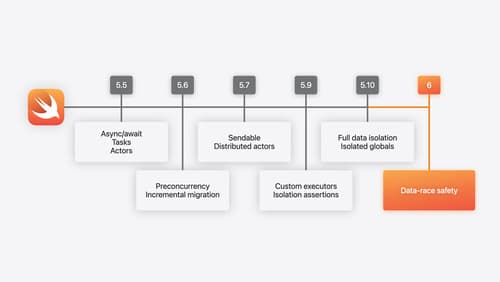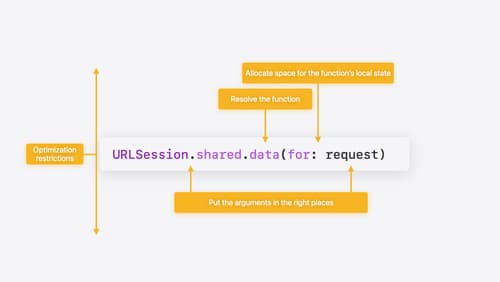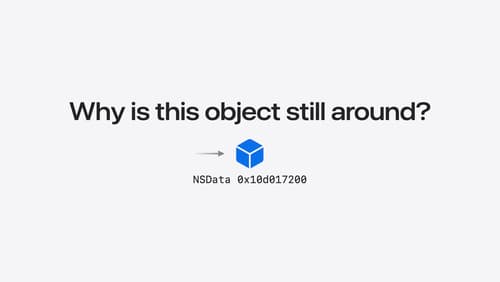What are some common performance pitfalls in Swift and how to avoid them?
Asked on 2024-08-08
1 search
Common performance pitfalls in Swift and how to avoid them were discussed in the session Explore Swift performance. Here are some key points:
-
Inefficient Function Calls:
- Pitfall: Making a lot of calls that aren't being optimized effectively.
- Solution: Ensure that your function calls are optimized. Use whole module optimization to allow more inlining.
-
Memory Representation:
- Pitfall: Wasting time or memory due to inefficient data representation.
- Solution: Profile your code to identify expensive struct copies and ensure that your most copied structs have simple fields. Minimize the use of reference types, copy-on-write types, and
Any.
-
Memory Allocation:
- Pitfall: Spending too much time allocating memory.
- Solution: Use tools to analyze heap memory and manage autorelease pool growth effectively. Enable whole module optimization to reduce overhead.
-
Value Copying:
- Pitfall: Unnecessary copying and destroying of values.
- Solution: Profile and look for generics that may need explicit specialization. Minimize the use of reference types and use non-copyable types where possible.
-
Automatic Reference Counting (ARC):
- Pitfall: High overhead from retain and release calls.
- Solution: Do not circumvent ARC. Instead, use tools to profile and reduce retain and release overhead. Mark methods as
@objc_directto allow inlining of Objective-C method calls and useobjc_externally_retainedattribute where applicable.
-
Generics and Protocols:
- Pitfall: Inefficient use of generics and protocol types.
- Solution: Profile your code to identify where explicit specialization of generics might be needed. Be mindful of the costs associated with using protocol types and use them judiciously.
For more detailed insights, you can refer to the session Explore Swift performance and Analyze heap memory.

What’s new in Swift
Join us for an update on Swift. We’ll briefly go through a history of Swift over the past decade, and show you how the community has grown through workgroups, expanded the package ecosystem, and increased platform support. We’ll introduce you to a new language mode that achieves data-race safety by default, and a language subset that lets you run Swift on highly constrained systems. We’ll also explore some language updates including noncopyable types, typed throws, and improved C++ interoperability.

Explore Swift performance
Discover how Swift balances abstraction and performance. Learn what elements of performance to consider and how the Swift optimizer affects them. Explore the different features of Swift and how they’re implemented to further understand the tradeoffs available that can impact performance.

Analyze heap memory
Dive into the basis for your app’s dynamic memory: the heap! Explore how to use Instruments and Xcode to measure, analyze, and fix common heap issues. We’ll also cover some techniques and best practices for diagnosing transient growth, persistent growth, and leaks in your app.
